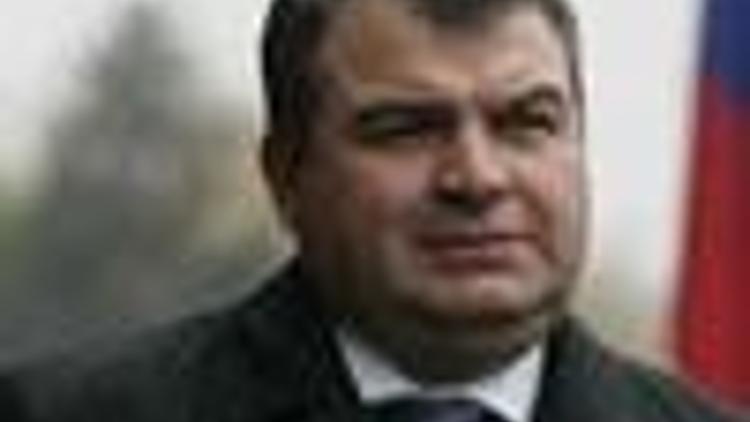Russia raps NATO over Georgia, Ukraine
Güncelleme Tarihi:

Russia's ties with NATO will remain strained as long as Ukrainian and Georgian membership of the alliance remain on the agenda, its defence minister said in an interview published on Friday.
The Kremlin accuses Washington of using NATO expansion -- in particular long-term plans to bring in ex-Soviet vassals Ukraine and Georgia -- to encircle Russia with hostile armies and draw new dividing lines in Europe.
"We stand for a serious, constructive dialogue with the alliance," Defence Minister Anatoly Serdyukov told Finland's National Defence Journal.
"But if someone hopes we will compliantly watch a military armada being built at our borders, with our national security interests being ignored, then we will have to upset someone".
Serdyukov said Moscow was worried by "the stubborn persistence of some alliance members, in particular the United States, to drag Ukraine and Georgia into NATO, no matter what".
"We would like to know, for instance, whether you would feel worried if there was a person armed to the teeth standing at the door of your house, who would not say why he came or what he would do next, and only brandished a knife in front of your face," he added.
At a meeting of NATO foreign ministers earlier this month, Germany led resistance to U.S. plans to give Ukraine and Georgia a timetable for NATO membership. Washington, however, has urged NATO to encourage the two states to join the alliance one day.
"As we know, there is no consensus in the bloc's ranks on this issue (of Ukraine's and Georgia's membership)," Serdyukov said. "Nonetheless, it remains on the agenda."
NATO-Russia forum
The work of a NATO-Russia forum was suspended after Russia's five-day war with Georgia in August following Tbilisi's attempt to retake the rebel region of South Ossetia by force.
"As for Georgia ... one can hardly imagine a role for this country in ensuring collective Euro-Atlantic security, especially now, after its barbaric punitive operation in South Ossetia," Serdyukov said.
"Of course, such a state of things does not help building constructive foreign policy relations between Russia and NATO."
In a move welcomed in Europe, U.S. State Secretary Condoleezza Rice has said she does not oppose "in principle" reviving contacts with Russia via the NATO-Russia Council set up to oversee the relationship.
But Serdyukov said that unless NATO was prepared to address Russia's concerns about expansion, Moscow had "something that can turn such hopes into illusions".
The minister said he was referring to President Dmitry Medvedev's order not to disband by 2010 three regiments of a nuclear missile division in central Russia.
Serdyukov reiterated that Russia could deploy Iskander tactical missiles in the Kaliningrad region bordering European Union territory, if Washington pushed ahead with deploying elements of an anti-missile system in Poland and the Czech Republic.
"You must understand that all these measures are forced upon us," he added.

